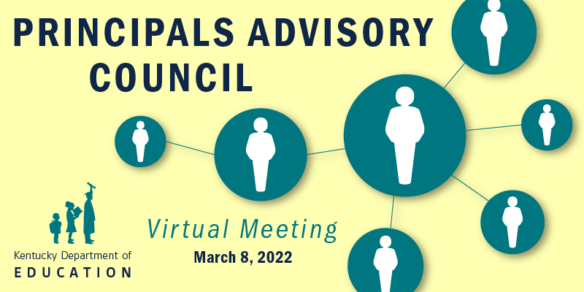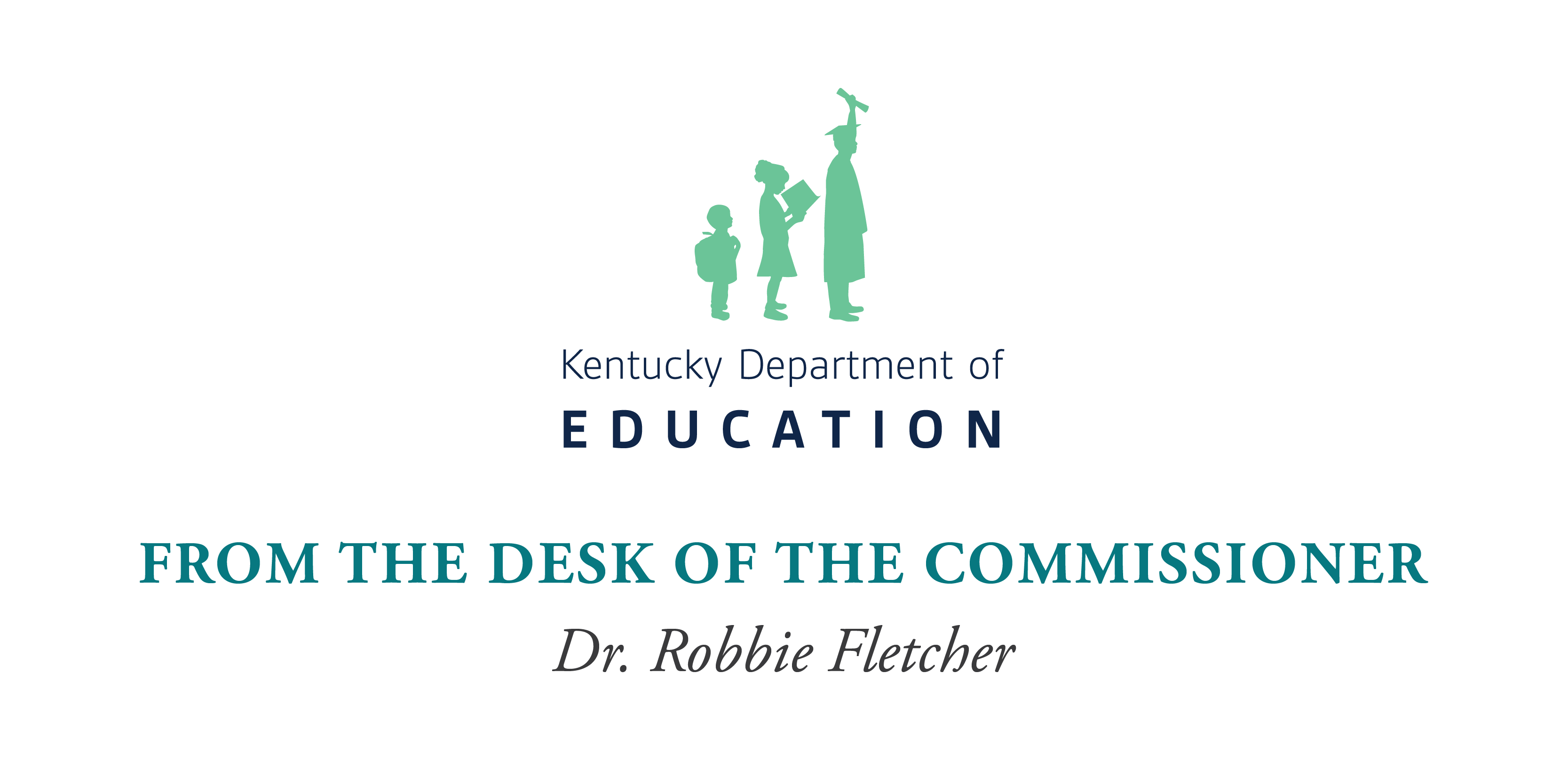
The Kentucky Department of Education’s (KDE’s) Principals Advisory Council (PrAC) heard about the current programs that address the growing shortage of teachers throughout the state during its March 8 meeting.
As the country faces a teacher shortage, many districts and states are turning to grow-your-own programs to create a sustainable solution to this issue, said John Paise, a program consultant in KDE’s Office of Educator Licensure and Effectiveness. These programs recruit from the current high school population to enter educator career pathway programs that introduce students to a career in teaching.
More than 60% of America’s teachers work within 20 miles of where they went to high school. While communities have a clear, inherent self-interest in providing opportunities to help guide young people on a well-supported path to teaching, teenagers also crave impact and are starved for role models, Paise said.
“Opportunities to test-drive teaching in high school can satisfy all these needs,” said Paise.
Kentucky has three grow-your-own program options for districts:
- The Teaching and Learning Career Pathway, a four-course, low-cost career pathway for high school students;
- Educators Rising Kentucky, a state-recognized career and technical student organization that provides access to resources through the national Educators Rising Organization; and
- Educators Rising Collegiate, which bridges the gap between high school and entrance into an education program. The collegiate Educators Rising was introduced in 2019 and there have been five chapters started in Kentucky.
In August 2021, KDE announced 10 Kentucky grown-your-own program grant recipients. Each of these districts received a one-time, $50,000 grant to further boost Kentucky’s teacher talent pipeline.
Paise suggested that if a district can only choose between the Teaching and Learning Pathway and Educators Rising, start with building an Educators Rising chapter.
“It’s a little less intimidating and it really allows students to dip their toe in the shallow end of the pool and take teaching for a test drive,” he said. “A lot of students find this love for teaching and education and serving others.”
On March 3, Educators Rising hosted its 2022 statewide conference, which included:
- 21 competitions and contests;
- 28 high school chapters;
- 277 students attending;
- 219 students competing;
- 15 exhibitors representing educators prep program and associations; and
- Nearly 400 attendees, including teacher leaders, judges and presenters.
KDE Associate Commissioner Byron Darnall said his goal for next year is to double the number of students at the conference.
To learn more about these programs that help build teacher recruitment and retention, visit the Grow-Your-Own Programs page on KDE’s website.
School Climate Support for Schools
Regina Dawson, program consultant in the Safe and Supportive Schools Branch within KDE’s Office of Continuous Improvement and Support, joined the meeting to tell the PrAC about the KDE resources available to them.
The Safe and Supportive Schools Branch acts as a resource for schools and districts regarding school safety, school mental health, suicide prevention, bullying prevention, substance abuse, human trafficking, child sex abuse and emergency operations and planning. Dawson’s work addresses student success and school climate transformation.
KDE offers a number of programs to address these issues. The Youth Mental Health First Aid program trains anyone who works with students to recognize trauma or signs of depression or mental health concerns. Dawson said training is open to all faculty and staff, including bus drivers, cafeteria workers and attendance clerks.
The Positive Behavior Interventions and Supports (PBIS) and Interconnected Systems Framework (ISF) includes a series of trainings designed to improve discipline and school climate, and to reduce the number of restraints, seclusions and out-of-school suspensions.
“The nice thing about PBIS is you can embed other programs and initiatives at the Tier 1 universal level, so that way you are not adding more to your plate as a school,” said Dawson.
Other programs, like Sources of Strength and Olweus Bullying Prevention, focus on bullying and suicide prevention. Trainings for the well-being of educators also are offered, such as trauma-informed practices for educators, resilience strategies for educators, techniques for self-care and peer support.
If interested in participating in these programs, email Regina Dawson.




Leave A Comment